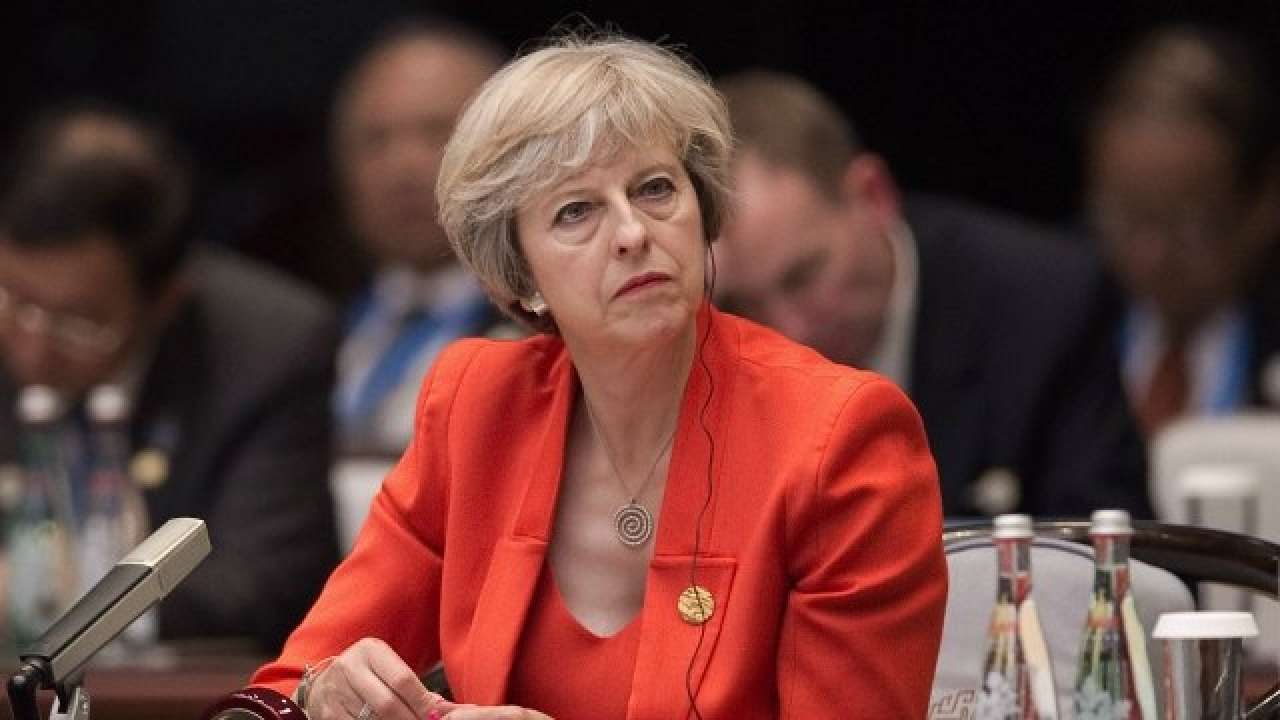Brexit: May in Final Push to Convince MPs

Theresa May
is making a final bid to save her Brexit deal ahead of a crunch Commons vote.
Battling a
sore throat after late night talks with the EU, the prime minister urged MPs to
back her "improved deal" or risk "no Brexit at all".
But a key
group of Tory Brexiteers and the DUP, who keep her government in power, have
both rejected the deal.
They say the
legal assurances secured by the PM are not enough to prevent the UK being tied
permanently to the EU.
In a
statement, the European Research Group - headed by Tory MP Jacob Rees-Mogg -
said: "In the light of our own legal analysis and others we do not
recommend accepting the government's motion today."
The DUP said
in a statement "that sufficient progress has not been achieved at this
time".
With husband
Philip watching from the public gallery, Mrs May told MPs that "Brexit
could be lost" if her deal is rejected.
"The
danger for those of us who want to have faith in the British public and deliver
on their vote for Brexit, is that if this vote is not passed tonight, if this
deal is not passed, then Brexit could be lost."
Charles
Walker, vice chairman of the 1922 Committee of backbench Tory MPs, said defeat
for the government in the vote later would lead to a general election.
He told BBC
Radio 4's World At One: "If it doesn't go through tonight, as sure as
night follows day, there will be a general election within a matter of days or
weeks.
"It is
not sustainable, the current situation in Parliament."
He added:
"She will lead us into that general election. We haven't got time for a
leadership election."
It comes
after Attorney General Geoffrey Cox told MPs the legal risk of being tied to
the EU after Brexit "remains unchanged".
He added
that the new assurances secured by the PM did "reduce the risk that the
United Kingdom could be indefinitely and involuntarily detained" in the
Irish backstop if talks on the two sides future relationship broke down due to
"bad faith" by the EU
He defined
"bad faith" as a "pattern of refusing to accept reasonable
proposals" on the Irish backstop.
But he said
the question of whether a satisfactory post-Brexit deal on a permanent trading
relationship can be reached remained "a political judgment" - and he
said MPs should back the PM's deal.
In his
advice, Attorney General Geoffrey Cox said "the legal risk remains
unchanged" that if a post-Brexit trade agreement can not be reached due to
"intractable differences", the UK would have "no internationally
lawful means" of leaving the backstop without EU agreement.
The last
time Mrs May's withdrawal agreement was put to Parliament in January, it was voted down by a margin of 230.
The BBC's
political editor Laura Kuenssberg said it would be a "political miracle of
historic proportions" if Mrs May could overturn such a heavy defeat.
Mrs May
earlier addressed a meeting of Conservative MPs, in an effort to change the
minds of those opposed to her deal.
Conservative
MPs leaving the meeting suggested half of those who voted against deal last
time will switch to support it later, said BBC's Chief Political Correspondent
Vicky Young.
Former
minister Grant Shapps said the vote would be close and Mrs May "needed the
DUP" to back her deal.
Work and
Pensions Secretary Amber Rudd said she believed the prime minister's deal would
go through "otherwise instability will follow which would be so
unwelcome".
Labour's
Shadow Brexit Secretary Sir Keir Starmer said: "The government's strategy
is now in tatters."
Documents
were agreed after Mrs May flew to the European Parliament with Brexit Secretary
Steve Barclay for last-minute talks with Mr Juncker and EU chief Brexit
negotiator Michel Barnier.
A
"joint legally binding instrument" on the withdrawal agreement
which the UK could use to start a "formal dispute" against the EU if
it tried to keep the UK tied into the backstop indefinitely.
A joint
statement about the UK and EU's future relationship which
commits to replacing the backstop with an alternative by December 2020.
A
"unilateral declaration". stating there is nothing to
stop the UK from leaving the backstop if discussions on a future relationship
with the EU break down and there is no prospect of an agreement.
Many MPs
fear the backstop, initially agreed by the UK government in December 2017,
would keep the country in a customs arrangement with the EU indefinitely.
The PM has
claimed the new documents addresses this issue and urged MPs to back the
"improved deal".
The UK is
set to leave the EU on 29 March 2019 after voting to leave by nearly 52% to 48%
- 17.4m votes to 16.1m - in 2016.
Mr Juncker
has warned MPs they would be putting everything at risk if they voted down the
deal.
"In
politics sometimes you get a second chance," he said. "It is what we
do with that second chance that counts. There will be no third chance."
The Irish
Prime Minister Leo Varadkar said the new agreements showed both sides'
"good faith" - although he made clear they did "not
undermine" the principle of the backstop or how it might come into force.
FROM .bbc.com/news/uk-politics-

No comments